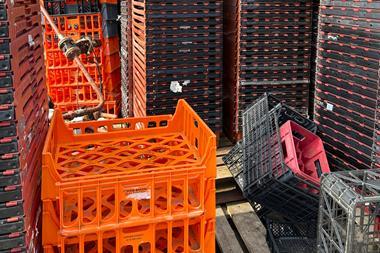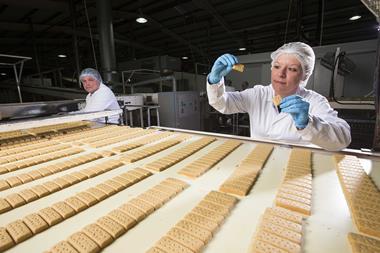The baking industry has questioned how the government’s apprenticeship plans will help the craft sector, as consultation on the apprenticeship levy opens today.
Employers are being urged to give their views on plans for the levy, which was first announced in the Summer Budget and will be compulsory for large companies, to boost investment in apprentices and skills training and will come into force in April 2017. Consultation closes on 2 October with an announcement to be made at the end of November.
Prime Minister David Cameron has reaffirmed plans to increase the number of apprenticeships offered by big businesses as well as the introduction of an apprenticeship levy.
Companies bidding for government contracts worth more than £10m will have to show they have a “reasonable proportion” of apprentices. Large companies must also invest in a fund that is used to train workers to come in in 2017.
Mike Holling, executive director of the Craft Bakers’ Association (CBA), said: “We will always support proposals regarding apprenticeships but I think the question the CBA will be asking is how will this help the small bakers? For big organisations there is credibility, as long as it is deliverable.
“Just like the National Living Wage, there was no consultation or discussion beforehand. We want to know how they can also engage with small businesses as well.”
David Smart, president of the CBA and director at Greenhalgh’s Craft Bakery, said: “I really don’t think [the levy] is going to have much of an effect on the craft baking industry. It would appear that it is destined for the heavier commercial engineering technological industries. I understand why the government is doing it – any form of training is wonderful.”
Levies in action
The tax is presented as a way to “level the playing field” so every large company plays a part in delivering a new generation of skilled apprentices with the aim of creating three million apprenticeships by 2020. This represents a 30% increase on the 2.3m created since 2010.
Levies on businesses are already used to finance apprenticeships in more than 50 countries, including France, Netherlands, Denmark and South Korea, but the amount that UK businesses have invested in training has fallen consistently over the last 20 years.
Cameron said: "The greatest asset any employer has is their workforce. And by investing in them, they are investing in the success and future of their business."
Nick Boles, Skills Minister, said: "Skilled people are the lifeblood of a strong economy, but for too long UK businesses have invested too little in developing their employees’ skills to meet the demands of a competitive, global market.”
In the latest of a series of steps to drive up the quality of apprenticeships, 59 new apprenticeship standards developed by Trailblazer groups of employers and businesses have been approved today.



































No comments yet